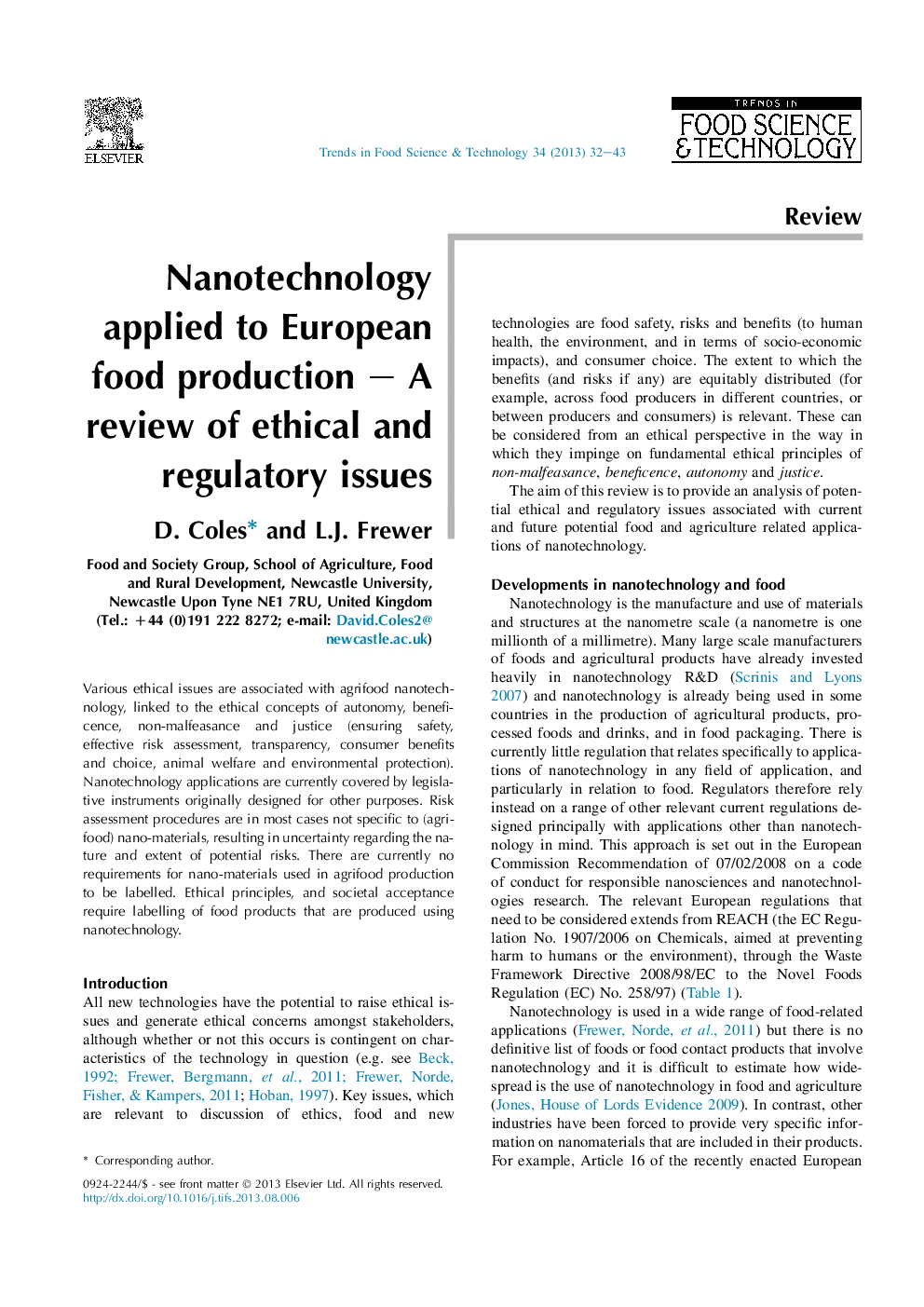| Article ID | Journal | Published Year | Pages | File Type |
|---|---|---|---|---|
| 2098766 | Trends in Food Science & Technology | 2013 | 12 Pages |
•Ethical concepts of autonomy, beneficence, non-malfeasance and justice can be applied to agrifood nanotechnology.•Ethics ensures safety, consumer benefits and choice, animal welfare and environmental protection.•Agrifood nanotechnology applications currently covered by European legislation designed for other purposes.•Ethical principles and societal acceptance require labelling of food products that are produced using nanotechnology.
Various ethical issues are associated with agrifood nanotechnology, linked to the ethical concepts of autonomy, beneficence, non-malfeasance and justice (ensuring safety, effective risk assessment, transparency, consumer benefits and choice, animal welfare and environmental protection). Nanotechnology applications are currently covered by legislative instruments originally designed for other purposes. Risk assessment procedures are in most cases not specific to (agrifood) nano-materials, resulting in uncertainty regarding the nature and extent of potential risks. There are currently no requirements for nano-materials used in agrifood production to be labelled. Ethical principles, and societal acceptance require labelling of food products that are produced using nanotechnology.
